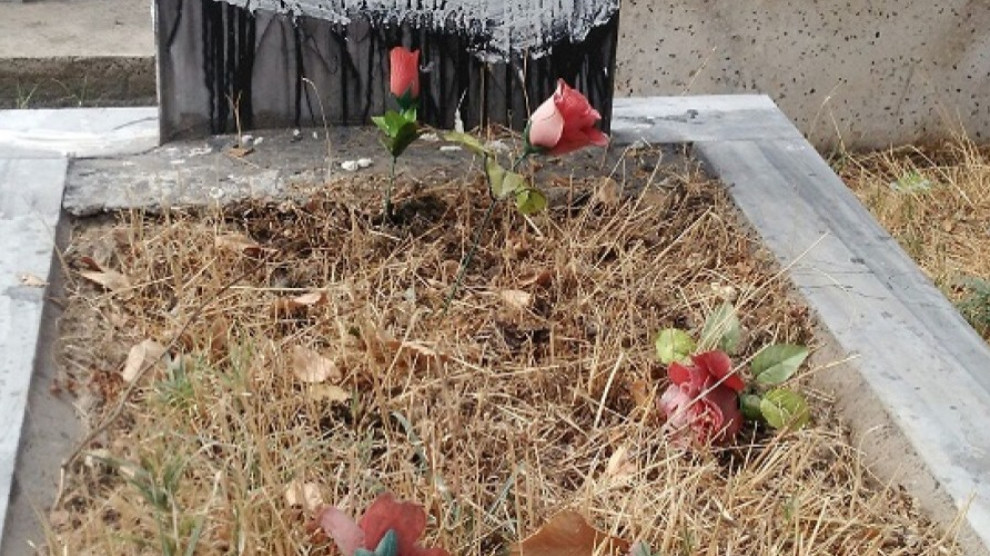Turkish soldiers target guerrillas' graves to intimidate families
Soldiers went to the graves one by one, taking away flags and yellow-red-green symbols, then went to the families' homes and got their identity information.
Soldiers went to the graves one by one, taking away flags and yellow-red-green symbols, then went to the families' homes and got their identity information.

Turkish soldiers launched a new pressure and intimidation campaign in Van, this time targeting graveyards. First, they tear off the photographs on guerrillas' graves, then what is left on the graves and then they go to the families to get their information.
The new campaign was launched a couple of days ago. It was learned that the soldiers went to the cemetery where guerrillas are buried taking the muhtars (town headman) with them in Van center and in the districts of Çaldıran, Muradiye, Saray and Özalp.
Soldiers went to the graves one by one, taking away flags and yellow-red-green symbols, then went to the families' homes and got their identity information. It is stated that the soldiers left the houses by threatening the families.
According to Mezopotamia Agency, a person who did not want to be named for security reasons said: "The mukhtar called us on Thursday afternoon and said that the soldiers asked for a family number. We asked why. 'The state will look at the cemetery,' the headman replied."
The same person added: "We were wondering whether this practice was only applied to us, but we learned later that they went to all neighborhoods. We learned that they are looking for all the children who have lost their lives. Soldiers are going to the cemetery, they take photos from the graves. They even took the yellow-red-green ribbons on the graves."
The members of another family pointed out that the relatives of all those who lost their lives in conflicts in their neighborhood were targeted. The source said: "They took the ribbons on the graves and destroyed them. Then they went to these families to get information about why they tied ribbons on the tombstone. They asked for a person's identity number from our family. Then they said to us, 'We came to warn you.' We never experienced anything like that."